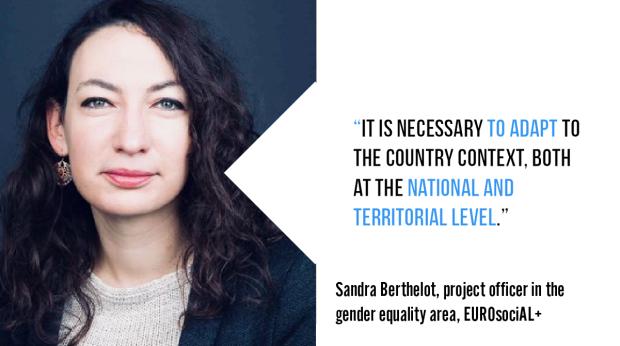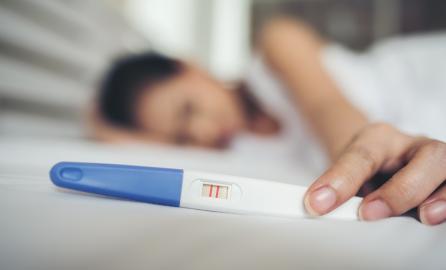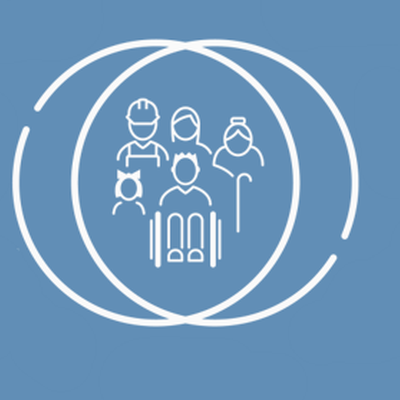This article was written by Sandra Berthelot, project officer in the gender equality area of the EUROsociAL+ programme and Annabelle Moreau Santos, communications consultant for the same programme, with the support of the Capacity4dev editorial team.
Este artículo también está disponible en Español.
Adolescent pregnancy is a complex issue, often with severe consequences. Latin America has the second-highest teen fertility rate globally -well above Asia, North America, and Europe. For 15 years, the European Union's flagship programme for social cohesion in Latin America EUROsociAL+ has been providing technical support to policy reforms at the national and territorial level, with a strong emphasis on gender equality and women empowerment. On International Youth Skills Day, it is an opportunity to tackle this hugely important public health issue.

Early pregnancy is one of the main obstacles to achieving the Sustainable Development Goals (SDGs). Adolescent pregnancy and motherhood lead to the interruption of schooling, to precarious insertion to the labour market and the intergenerational reproduction of poverty, as well as having an impact on the parent’s health. Particularly for women in vulnerable socio-economic contexts, early childbearing also appears to reinforce traditional gender roles, prolonging the restriction of rights.
Chris Hoornaert, Ambassador of the Delegation of the EU to the Republic of Panama, contextualises, "Panama ranks above Latin American and Caribbean levels, with an adolescent fertility rate 20% higher on average than the rest of the region. This rate has fallen at a much slower pace than in the rest of the countries and has remained at levels above 85 per 1,000 women for 15 years. This poses a development challenge that requires urgent attention."
The EU-funded programme EUROsociAL+1 and, more specifically, its areas of Gender Equality Policies and Social Policies, provide technical assistance support to the Ministry of Social Development (MIDES) of Panama to guarantee access to education and health care for pregnant minors to improve their quality of life in Panama. To achieve this goal, the parliament -in 2006- reformulated the current legislation and approved Law 60 on Pregnant Minors.
Good practices of the EUROsociAL+ programme:
- Build a roadmap with several proposed activities through research and exchange of good practices between EU countries and Latin America. This strengthens inter-institutional work to realise an adapted national prevention strategy with the commitment of all state institutions.
- Engage with multiple stakeholders in preventing unwanted pregnancies as part of a transformative approach to unequal gender relations.
- Implement a comprehensive and inclusive approach for adolescent girls, migrants, indigenous people and those living in disparity.
1. Building a roadmap for activities through research and exchange of good practices between EU countries and Latin America

Exchange visits to other countries promoted by EUROsociAL+ have been an essential pillar in the search for good practices and, above all, mutual learning among peers. Exchange visits between Uruguay and the UK have highlighted an urgent need for:
- greater dialogue with academia and civil society as a factor in legitimising policy on a socially sensitive issue;
- increase of communication and coordination channels between government agencies, avoidance of duplication of efforts, and the reaching of a consensus on decision-making routes with local application of the strategy with municipalities.
Alleviating this problem implies adopting an inter-institutional and intersectoral working methodology. EUROsociAL+ is supporting the new Panamanian law that elevated the Commission on Pregnant Minors to the Council for the Care of Pregnant Minors (CONAMA2), to reduce teenage pregnancy, ensure the development of young women's skills and their insertion to the labour market.
2. Engaging with multiple stakeholders in preventing unwanted pregnancies
Preventing teenage pregnancy is a public health issue where the life cycle of teenage mothers and fathers is concerned. There is an impact on health, development, the educational trajectory, the labour market and much more.

Gabriela Seracin, an adolescent mother of a two-year-old child in Panama, explains, "the state should promote more sex education in private and public schools for young girls and boys."
To achieve this goal, the EU, through EUROsociAL+, initially identified the substantive elements of the Law on Pregnant Minors (Law 60). It now supports the design and implementation of a public policy aimed at addressing the problem of adolescent pregnancy, taking into account the flaws revealed in the current child protection system.
The programme is currently organising various discussion groups with young parents, youth, academics, and ministries to understand their priorities and needs. One of the most critical challenges is the construction of inter-institutional public policies and the involvement of all components in a national strategy to prevent adolescent pregnancy. In this sense, the national strategy will result from a diagnosis and the recommendations of various parties considering the Panamanian reality.
María Inés Castillo de Sanmartín, Minister of Social Development of Panama, explains, "We have carried out a consultation process with public actors, international organisations, academics, and young people. These consultations intend to fulfil the objectives of identifying needs and priorities, contemplating the strategy in the new context, and promoting building the strategy based on a broad exchange and consultation. This will generate a robust consensus on the new version of the reformulated strategy that provides a coordinated, integrated and coherent implementation of all its components."
3. Implementing a comprehensive approach
In the framework of this action, the main obstacles to achieving the objectives mentioned above are the lack of information for young people, restricted access to comprehensive sex education and adequate sexual and reproductive health services. Unintentional pregnancy also stems from abuse, sexual violence and barriers to accessing contraception (especially for those living in vulnerable conditions).

Sandra Berthelot, project officer in the gender equality area of the EUROsociAL+ programme, emphasises, "it is necessary to adapt to the country context, both at the national and territorial level. The situations that adolescent mothers and fathers face in Panama City do not have the same implications as in other territories, for example, in the six regions that Panama has."
The implication of the country context is relevant to generate a national strategy for the prevention of teenage pregnancy which is adapted to the diverse realities within a country. Different territories have their own needs and priorities, which a national strategy must consider for its successful implementation.
EUROsociAL+ will continue its work, responding to the needs and demands of the countries for the improvement of social cohesion, the reduction of inequalities and the fulfilment of human rights.
Click on the play button below to watch our video about the EUROsociAL+ programme supporting MIDES in Panama
Have you been working on the empowerment of young pregnant women, or are you promoting youth skills in Latin America and the Caribbean?
What was your approach?
Did you meet any challenges, and how did you address them?
Leave your comment below!
|
More about EUROsociAL+ programme supporting MIDES in Panama From the perspective of social cohesion, the promotion of decisive policies to prevent and support teenage pregnancy directly impacts the reduction of inequalities, aiding women and girls affected by multiple discriminations. Adolescent pregnancy is a multi-generational factor of poverty in Panama. The country has the fourth-highest teenage fertility rate in the entire region (surpassed by the Dominican Republic, Venezuela, and Nicaragua). The COVID-19 pandemic has deteriorated access to health services; thus increasing inequality. The lack of adequate sexual and reproductive health and rights is revealed as social inequality, impacting the life cycle of women and girls in the physical, economic, educational, political and decision-making spheres. In addition, the action supports Panama in advancing towards compliance with the Committee on the Elimination of Discrimination against Women (CEDAW) recommendations. In particular, it addresses recommendation 37 of the latest available CEDAW Concluding Observations Report (2010, p. 8) to the State of Panama: "37. The Committee recommends that the state party conduct studies or surveys to analyse the main causes of early pregnancies in the country and implement programmes or plans to promote the continuation of education for girls who become pregnant. It also recommends that a strategy be implemented to monitor short-term compliance with Law No. 29 to facilitate the completion of education for pregnant girls." Interested in knowing more about teenage pregnancy in Latin America? :
|
Credit: Video © Capacity4dev | Photo © Freepik
1 EUROsocial+ is implemented by a consortium led by the International and Ibero-American Foundation for Administration and Public Policies (FIIAPP), Expertise France, the International Organisation Italian- Latin American (iila), the Secretariat of Social Integration of Central America and System of the integration of Central America (SICA).
2 CONAMA is made up of MIDES, the Ministries of Health, Education and Labour, the National Secretariat for Children, Adolescents and the Family, the Social Security Fund, and the Women's Institute, among others.







Log in with your EU Login account to post or comment on the platform.